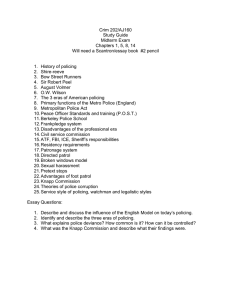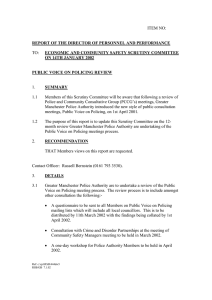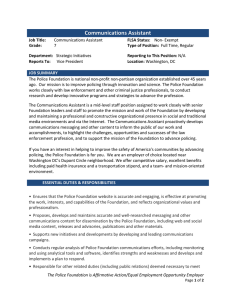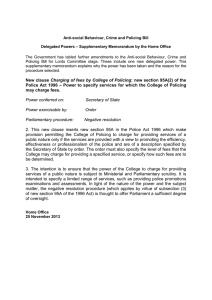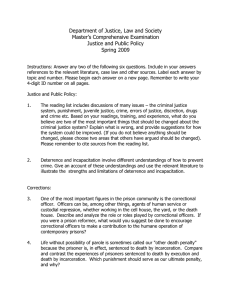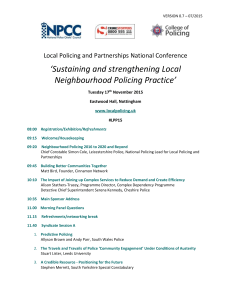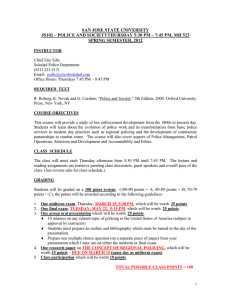Unit II Study Guide The historical development of policing…how has
advertisement
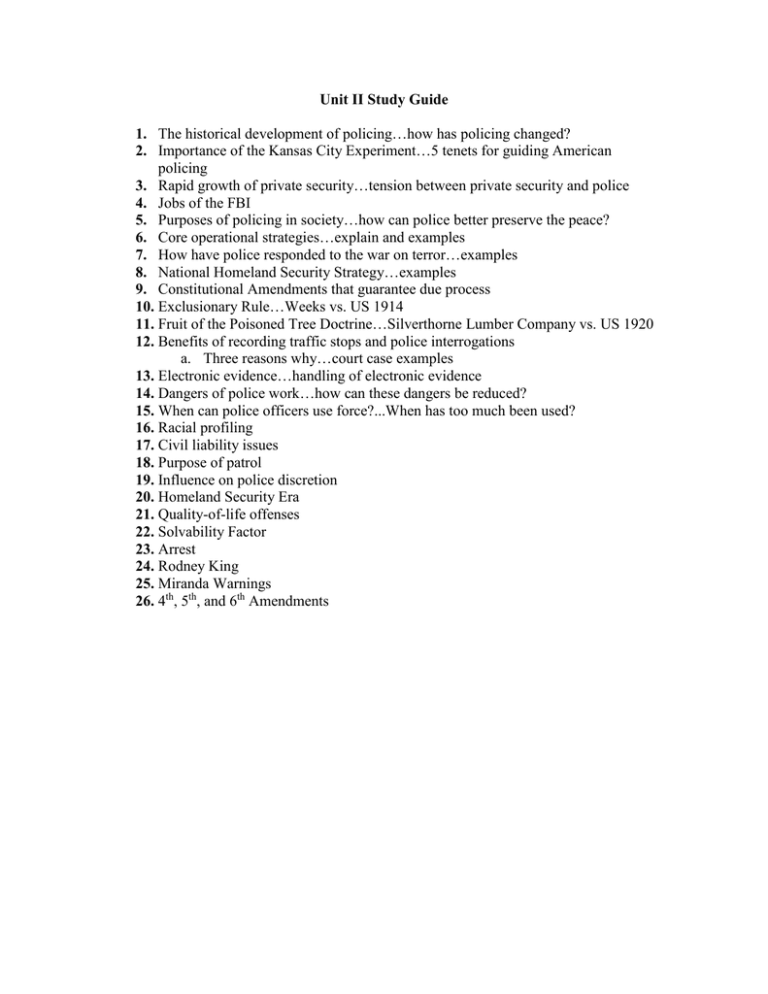
Unit II Study Guide 1. The historical development of policing…how has policing changed? 2. Importance of the Kansas City Experiment…5 tenets for guiding American policing 3. Rapid growth of private security…tension between private security and police 4. Jobs of the FBI 5. Purposes of policing in society…how can police better preserve the peace? 6. Core operational strategies…explain and examples 7. How have police responded to the war on terror…examples 8. National Homeland Security Strategy…examples 9. Constitutional Amendments that guarantee due process 10. Exclusionary Rule…Weeks vs. US 1914 11. Fruit of the Poisoned Tree Doctrine…Silverthorne Lumber Company vs. US 1920 12. Benefits of recording traffic stops and police interrogations a. Three reasons why…court case examples 13. Electronic evidence…handling of electronic evidence 14. Dangers of police work…how can these dangers be reduced? 15. When can police officers use force?...When has too much been used? 16. Racial profiling 17. Civil liability issues 18. Purpose of patrol 19. Influence on police discretion 20. Homeland Security Era 21. Quality-of-life offenses 22. Solvability Factor 23. Arrest 24. Rodney King 25. Miranda Warnings 26. 4th, 5th, and 6th Amendments
